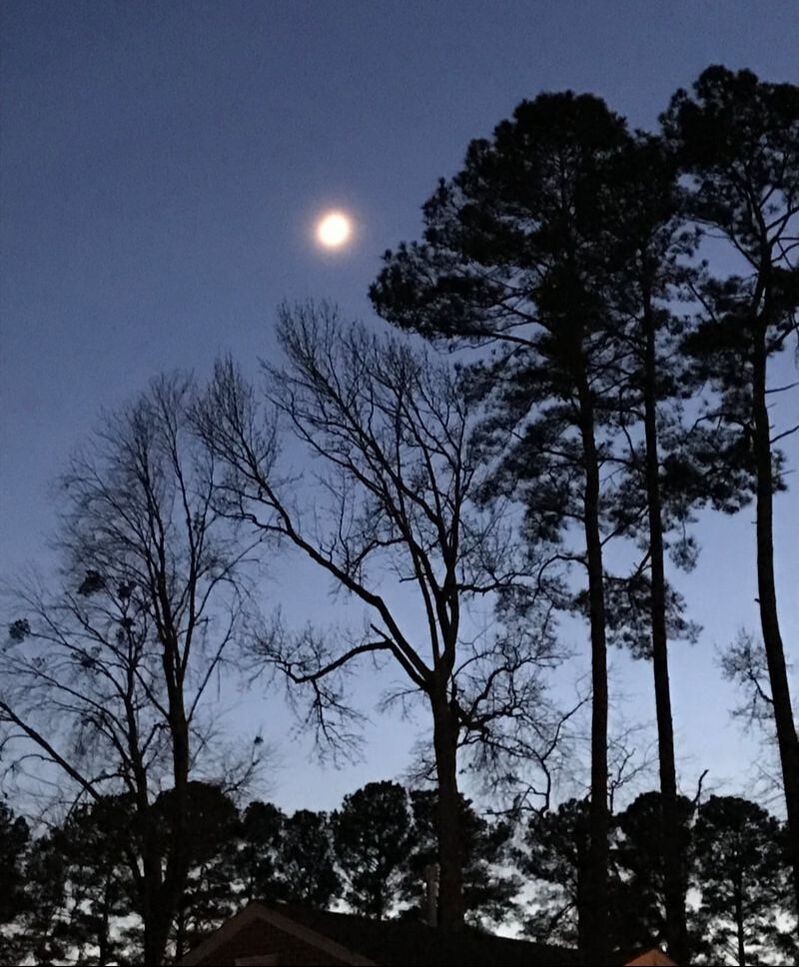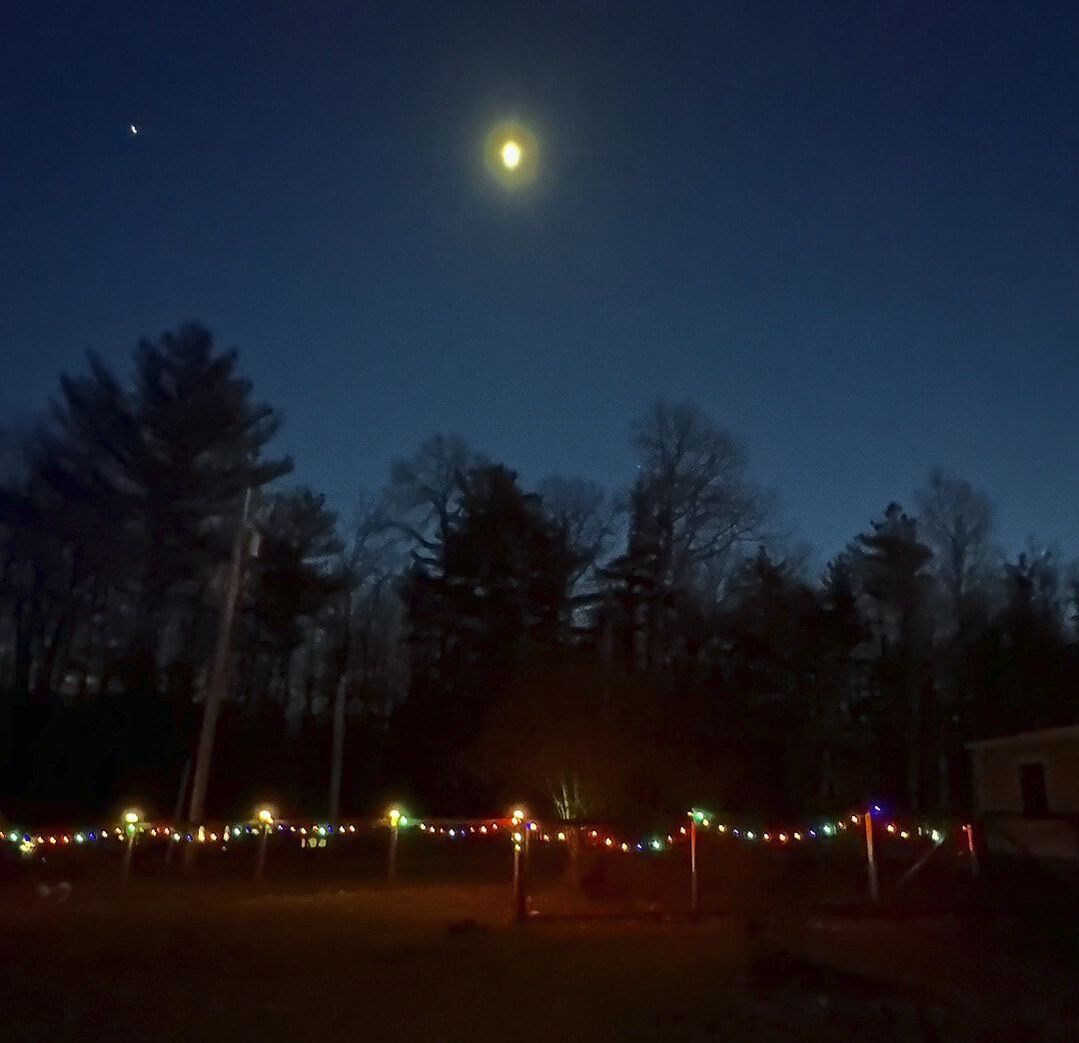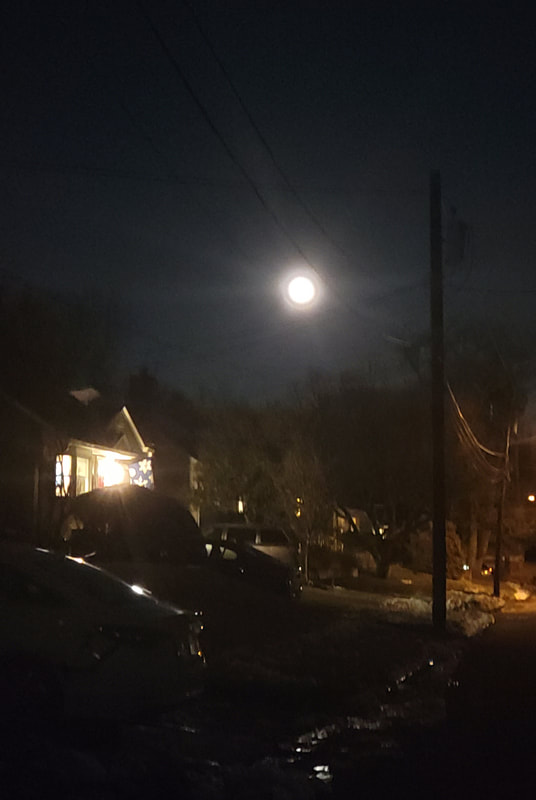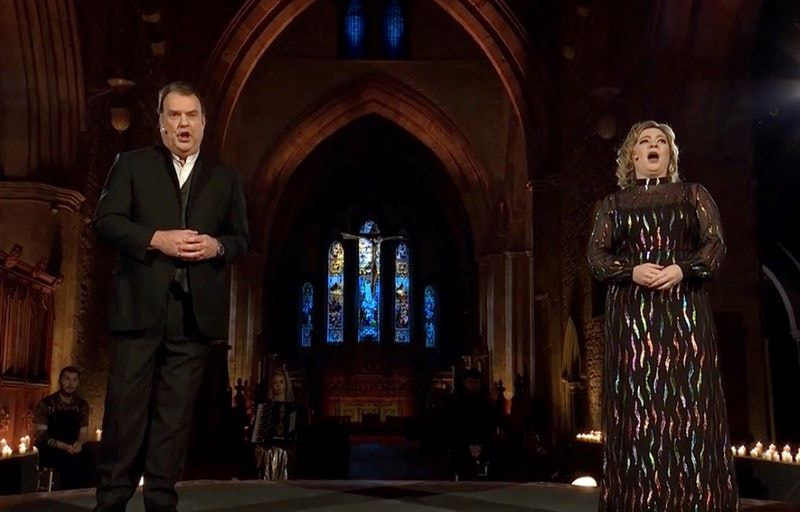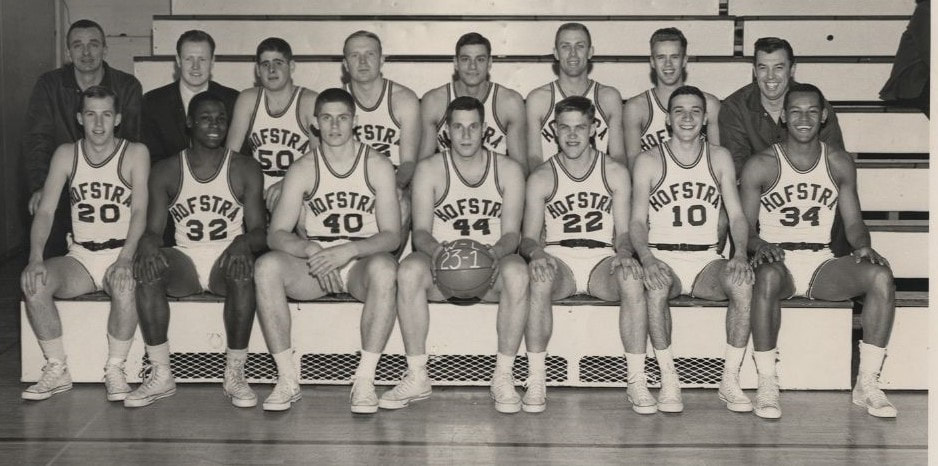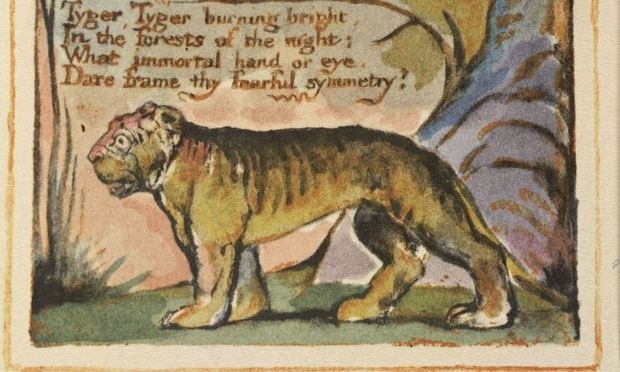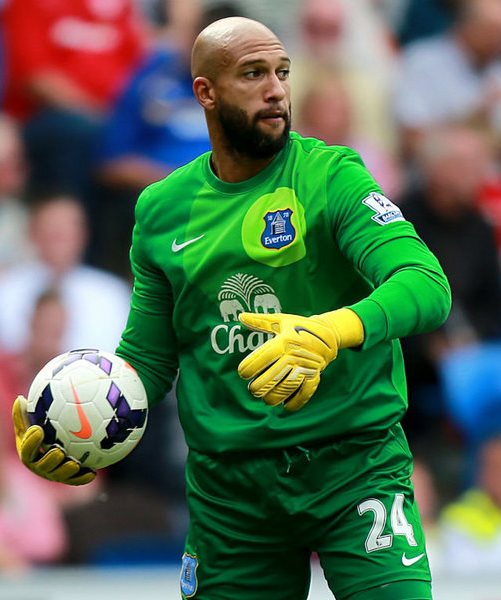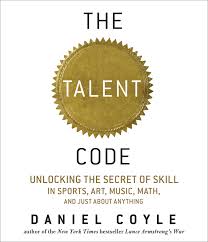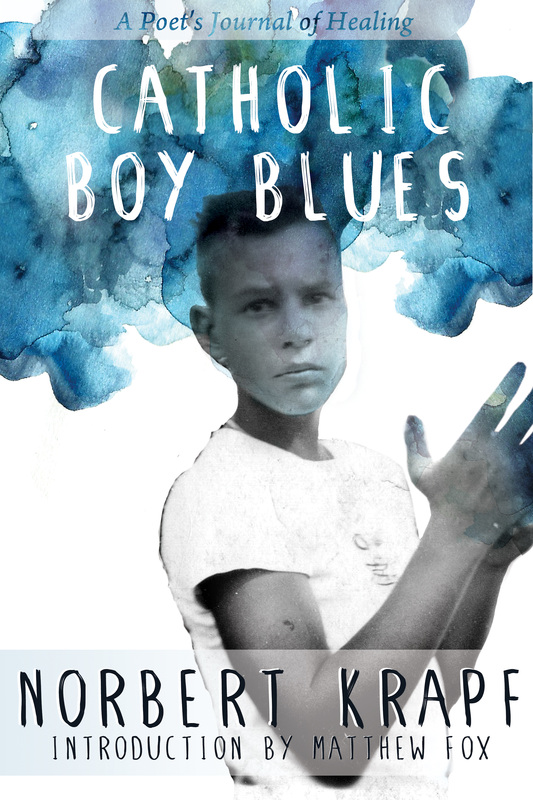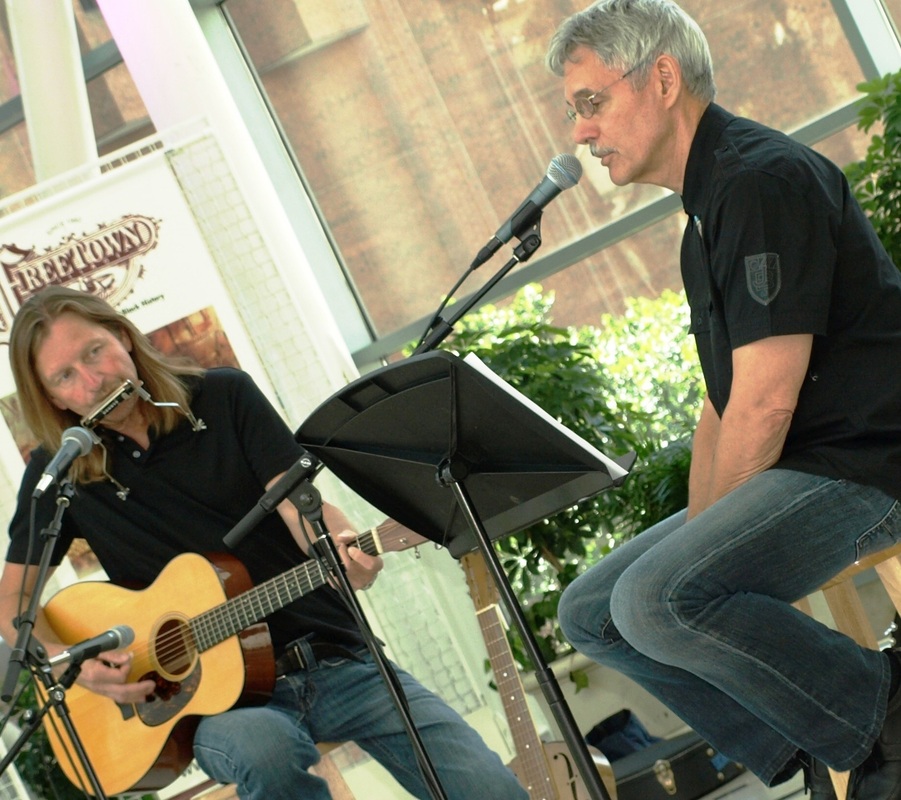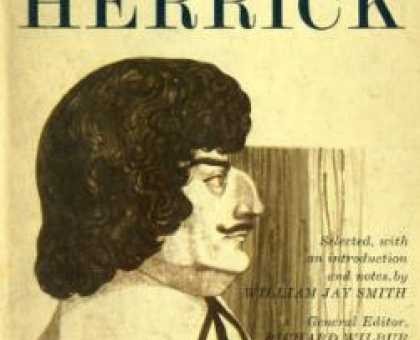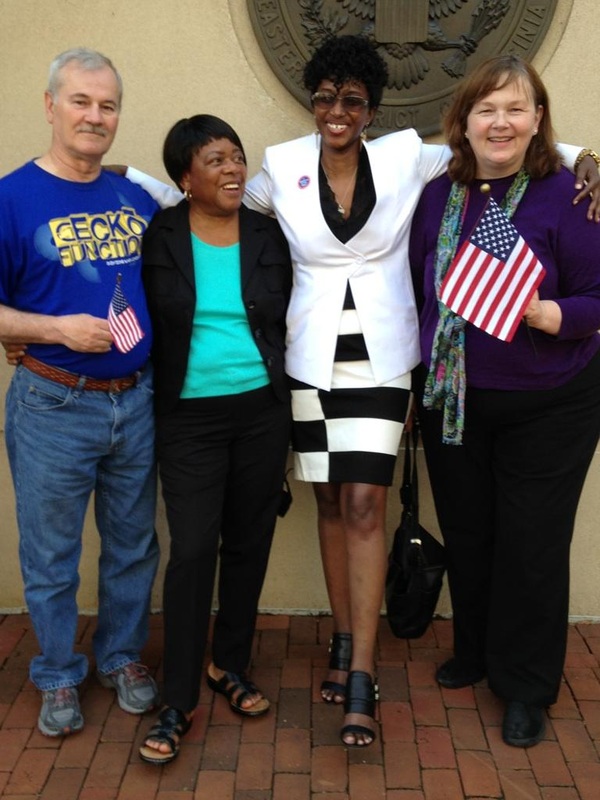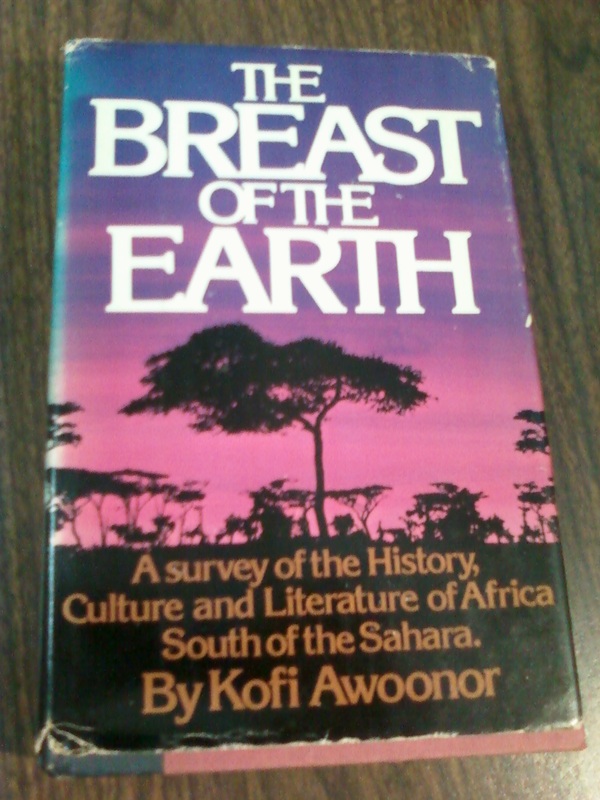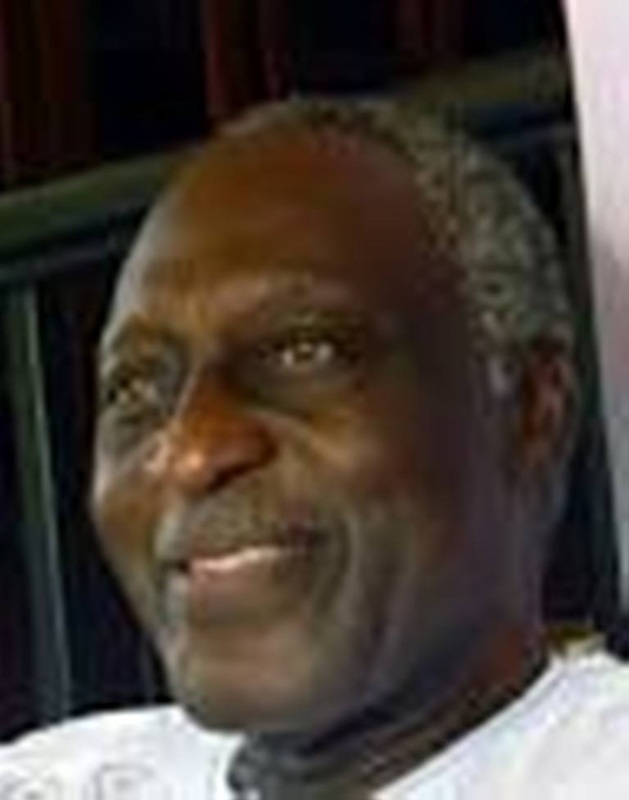|
Great minds think alike. On Tuesday night, in southern Virginia, Randy Fiery felt the coming arrival of the Solstice moon (Thursday, 10:27 PM, eastern time), so he went outside and took advantage of the clear night sky to snap a photo of the full moon. Then he began to write: Never let your head hang down. Never give up and sit down and grieve. Find another way. And don’t pray when it rains if you don’t pray when the sun shines. ---Satchel Paige Then Randy continued to write: Wake up. A new day is upon us. The Winter Solstice is here. It is the shortest day and the longest night of the year. And it is believed that we humans have been celebrating this day for countless generations. Anthropologists say that solstice celebrations go back 30,000 years. Count your fingers and count your toes. Yes, we are still breathing, still meandering through this big old, goofy world. I know that some of you are getting a wee bit older and are looking in the face of impermanence. But I believe that on this day we can all feel a little younger. Take a deep breath and consider that magical stuff may be lurking in the air and sky. Speaking of the sky, it just so happens that a pair of owls have moved into my neighborhood. I have not seen these owls, but I frequently hear them between midnight and 4 AM. Their call is distinctive. They are Great Horned Owls: birds that have a wingspan of 3-5 feet. They are big, silent and deadly. So last night, in honor of the Winter Solstice, I decided to celebrate. It was 3 AM and the temperature was in the high 30s. Dressed in my best pajamas and a good pair of slippers I headed out into the night. I had a flashlight, but I did not turn it on. I went to my garden and sat down on a small stool made of West Virginia hemlock. I was able to locate one of the birds by his call, but my flashlight was not powerful enough to see the owl.. Darkness, silence and the shrill “hooting” of the owl was enough. I did not see that giant bird as winter came to me. But the good news is that the neighbors did not call the police. The neighbors did not go to the local mental health center to report an elderly man in his pajamas, with a flashlight wandering around in the neighborhood. Yes, things can always be worse. I am lucky on this winter day, just knowing that big birds are hanging out in my neighborhood. And best of all, I’m glad that I know each of you. Happy Solstice, R. (Then he added two poems) Meantime, hundreds of miles to the north, Laura Vecsey saw the very same moon, hovering over the hillside at Goose Hollow, N.Y. Laura is herself a poet, among her many talents, but she let the moon do the talking, high above the new fence that keeps in the pups and, theoretically, keeps out the deer and the coyotes and the porcupines and other wildlife. She added some emojis and the message, "Happy Solstice!!!" Did I say, great minds think alike? As it happens, Laura's mother and Randy Fiery both have ancestors with the same family name, Whipple -- dating back to the 17th Century, probably different entry points. But enough genes in common to be under the spell of a nearly full moon, the incoming Solstice. This all deserves a Solstice poem. From Nadia Colburn's lovely website,
Snowy Night by Mary Oliver Last night, an owl in the blue dark tossed an indeterminate number of carefully shaped sounds into the world, in which, a quarter of a mile away, I happened to be standing. I couldn’t tell which one it was – the barred or the great-horned ship of the air – it was that distant. But, anyway, aren’t there moments that are better than knowing something, and sweeter? Snow was falling, so much like stars filling the dark trees that one could easily imagine its reason for being was nothing more than prettiness. I suppose if this were someone else’s story they would have insisted on knowing whatever is knowable – would have hurried over the fields to name it – the owl, I mean. But it’s mine, this poem of the night, and I just stood there, listening and holding out my hands to the soft glitter falling through the air. I love this world, but not for its answers. And I wish good luck to the owl, whatever its name – and I wish great welcome to the snow, whatever its severe and comfortless and beautiful meaning. ### Colborn writes: What better way to celebrate the solstice than with some winter solstice poems? I've chosen some poems to help you savor this time of year. Jump to the poems below. It’s no wonder that throughout history at this dark time of year, people around the world have celebrations of light: Hannukah, Christmas, Kwanzaa all celebrate the miracle of light in dark times. Unfortunately, our society often overlooks the creative and more spiritual side of our traditions. The holidays become times to buy and eat more. But rather than consume more external things, we can treat this dark time as an invitation to wonder and re-ignite our own internal fire. If we want to ignite our inner fire, we need to go inward. It's true that what we might find there may be our own darkness, not just the reflection of others’ darkness. But if we sit with our own pain, we will also be able to sit with our own wonder and process of transformation, which is its own kind of light. And even in the darkness, as winter solstice reminds us, there is light and still more light to come: tomorrow we come get just a bit closer to the sun again. These poems remind us of the light around and within us. The practice of writing can also remind us of the power of light, of rebirth in darkness, or miracles when it seems that the light is running low. I hope you'll enjoy some prompts at the end of the poems. So even in this busy holiday season, take some time to get comfortable and settle down with a pen and paper. nadiacolburn.com/winter-solstice-poem-2022/ Colborn also includes a solstice poem by the great Kentucky poet and environmentalist, Wendell Berry. (I wrote about him a year ago.) Happy Solstice The Dutch players were technically strong, physically strong, mentally strong, as they beat the United States, 3-1, Saturday in the World Cup.
In recent years, American players have run into Dutch players, sometimes literally. They know how sound the Dutch are. Virgil Van Dijk, 6-5, 203 pounds. Denzel (!) Dumfries 6-2, 174. Cody Gakpo, 6-4, 172. Memphis Depay, 5-10, 168, and solid. And that keeper, Andries Noppert, all 6-8, 205 pounds of him. Welcome to the knockout round of the World Cup. Americans may be wringing their hands – looking for scapegoats, blaming the coach--for losing in the Round of 16 but they need to remember: the U.S. produces great athletes in so many sports, and the progress in recent decades is encouraging, but this time the U.S. ran into a top-ten soccer nation. The Americans came out smoking, and Christian Pulisic had an early shot on goal, but it was swatted away. his velocity appearing to be 75 percent of normal. This told me his pelvic injury last Tuesday was still hampering him. Fans may grumble that manager Gregg Berhalter kept Pulisic in for the full match, a tribute to Pulisic’s skill and his drive, but Pulisic was not up to his own level. (Did Berhalter miss the chance to sub for a subpar Pulisic? Did he not react to the Dutch offense aiming at the flanks? Did he fail to control the huge Welsh sub who dominated the middle in the first match? Fans are making a list.) The big Dutch people took a lot out of the Americans. The U.S. was trailing, 1-0, in the final minute of the first half, clearly dragging, as they urged themselves to one more attack. I saw Sergiño Dest shaking his wrists, as if trying to prod himself to keep moving, as the Americans pressed for a late goal, but the Dutch scored against the weary Yanks just before the first half ended and the Americans never caught up. Dest was born to a Dutch mother and American father, and grew up near Amsterdam, but was not funneled into the Dutch academies where prospects are taught. The Netherlands is known as the best soccer nation to never win a World Cup, even as they modernized soccer with a smart geometric tiktok-passing style. When Dest had to choose whether to play under a Dutch passport or an American passport, he went for the better chance to play for a national team, in a World Cup. The U.S. is trying to catch up, producing admirable teams that reached the knockout round in 1994, 2002, 2010 and 2014 and now 2022. A musty mom-and-pop organization in the early 1980s, the federation has been seeking U.S.-based Latino players learning the game from their elders, and African-American players who take to the sport. The best example is DaMarcus Beasley, who could dunk a basketball from his adult height of 5-8. He was teased in his neighborhood in Fort Wayne, Ind., because he preferred soccer, but he became one of the great American players in the past generation. When the U.S. World Cup team visited the 9-11 memorial in New York City or the DMZ between North and South Korea, Beasley gave the most thoughtful insights. And in the 2010 match with Algeria, he was a sub in the 81st minute, his speed opening up the field for the game-winning fast-break goal. The U.S. continues to attract players of color – Cobi Jones, with his 164 caps, and Earnie Stewart, another Dutch import, plus Eddie Pope, Tony Sanneh, Oguchi Onyewu, Maurice Edu, just off the top of my head. But other great sports – football, basketball and even baseball, growing more white -- also attract Black athletes. As American soccer players continue to move to Europe, with its lucrative salaries, and as the World Cup blasts over the tv in the U.S., the point will not be lost: This is a great sport, attracting Tyler Adams and Christian Pulisic and all the other charismatic U.S, athletes. But for the foreseeable future, the U.S. will have to raise its game to confront world powers like the Netherlands. (Mike From NW Queens is a regular reader of this little therapy website, and an occasional commentator. He's been saving it up. The other night, Mike took a health walk and snapped a photo of the moon, and got to thinking, and later he wrote a poem, except he didn't think it was a poem, just the musings of a guy taking a walk. Here it is, unchanged, but arranged in stanzas. Maybe you noticed, this is a New Jersey moon, not a NW Queens moon. They have a different moon in New Jersey. Thanks, Mike. GV.) Yes, It Is Still There
I took a walk early tonight Cold? A bit, so what? As I finished the loop, I noticed the crystal clear moon in the sky. Yes, still there. Still beautiful, our natural satellite (thank you, Wikipedia) A site for sore eyes tonight, too. Moonstruck! (Couldn't resist) Sometimes the doldrums set in. Covid, this or that, Whatever. May be more mental than anything. Golf clubs. I know where they are, but they are dormant, for now. You heard it, for now. But the moon caught my eye and made me grateful, pushed the cold weather aside, put the other noise aside for a bit. Someday, normalcy will be what normal was. Who knows? What’s my point? Enjoy the moment, enjoy what is in front of you. Who you are with. Your job, a warm house, a turkey burger on an english muffin! The little things....... Not all gifts come wrapped.... 20/20 vision, being able to choose to take a walk, headphones, and tonight, listening to the Rolling Stones’ greatest hits, tomorrow, free to choose something else. Sounds normal. I am rambling. Thanks for being my friend. One day at a time. --- Mike From NW Queens There are people out there, breathing a killer virus at you. There is also a ton of snow on the ground where I live. My suggestion: try tuning out the Lame-Duck Orange Sicko for a day. I did it over the weekend. Good Stuff on everywhere. . I started with a link from a friend known as The Cork Lady. (Ireland, that is.) She and her husband sent me a link to a concert via the shut-down Metropolitan Opera -- Bryn Terfel with a holiday concert from his native Wales. What a wonderful surprise: the concert (with no audience) was in the Brecon Cathedral – a place we know and love, in the highlands above Cardiff, The vivid stained-glass brought back memories of a beautiful summer evening, still light outside, our friend and host Alastair (like all Welsh men) singing in a chorus. While Terfel and a talented cast took turns, my mind drifted to Brecon in long-ago summers --sheep being marshalled by border collies, the jolly sound of tourists on canal boats from the nearby Usk River, trips to upscale pubs along the canal, and Alastair going to Brecon market to buy lava bread (pungent, allegedly edible seaweed from the coast.) Not exactly Christmas memories, but lovely memories nonetheless. At 5 PM, another link – this one via the Pulitzer-Prize winning poet, Stephen Dunn, my friend from his days as a zone-busting shooter for Hofstra College. No. 20 was known as Radar on a 23-1 team. Radar writes as he shot – smoothly -- his latest book, Pagan Virtues, just out. Stephen’s poetic aim is still perfect but his voice does not permit him to read his own work these days. In a weekly web poetry reading, called LitBalm, some of his new work was read, and read well, by his friend Indran, while Stephen listened in one of the squares on the laptop grid. Keep lofting these jumpers, man. 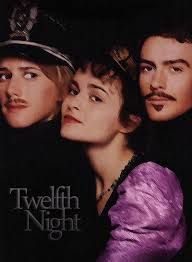 They figure it out They figure it out At 9 PM, we turned on the local PBS station, Channel 13, with its Saturday-night feature -- a classic, or classy, movie (sometimes, inexplicably, displaced by drippy oldie concerts). But not Saturday. Mercifully, there was the Trevor Nunn movie version of “Twelfth Night,” from 1996, Shakespeare’s gender-bender comedy, with a cinematic shipwreck and looming Cornwall hills and castles and Helen Bonham Carter falling in love with a saucy emissary with a highly dubious mustache draped across her kissable upper lip. The cast, as in any English rendition of Shakespeare, was marvelous, but let me praise two: Nigel Hathaway as Malvolio, the resident mansion bully, and Ben Kingsley, for goodness’ sakes, as an omnipresent troubadour (with a really nice voice, his own; it turns out that Kingsley was once urged to pursue singing by his pal, John Lennon.) (We recently saw a stage version of Twelfth Night via the marvelous National Theatre's at-home series, prompted by the pandemic. In that version, Malvolio is female, played by Tamsin Greig, and her comeuppance seems more cruel than Hawthorne’s.) During the final scene Saturday night, when everybody finally figured everything out, I had tears in my eyes. Good Shakespeare does that to me. The antidote for tears came nine – count ‘em, nine – minutes later, on “Saturday Night Live,” the last new one for a month apparently. The host was Kristen Wiig, one of the all-timers, visiting her old haunts. Her opening bit was singing the wintry standard “My Favorite Things,” and when she botched the lyrics, she was joined by another all-timer, Maya Rudolph, who also botched the lyrics, and was in turn joined by the current all-timer Kate McKinnon. Regarding McKinnon: I am watching SNL more in my “retirement” than I ever did, and am totally enthralled with McKinnon In the all-time web ratings of SNL females, I propose St. Gilda as first, and Tina Fey as second (those laser eyes, looking right at you), and McKinnon now ranks third, with me. I love her versions of Rudy and Dr. Fauci and that fuzzy little attorney general, Jeff Sessions, and McKinnon also aces some dark-side female roles, throwing off heat in all directions. How Shakespearean.  That brings us to Sunday. The far-flung family of Anna and the late Kate McGarrigle is staging a virtual reunion, Sunday, all over the world, apparently. It will be streaming (at a price) and available for two weeks, starting at 3 PM. The cast includes longtime backup Chaim Tannenbaum, third-sister Jane McGarrigle, and other staples of that wonderful time. I will catch it, and think of Kate. * * * Also, Nick and Teresa Troiano Masi (Terry and I worked on the paper at Jamaica High) have a grown daughter, Terri Dierkes, who is a cantor in a church in Connecticut, and a leading member of a lovely Christmas concert, which aired Sunday. Details at: https://www.musae.me/terridierkes/experiences/876/an-enchanted Finally, ongoing, for a season of great plays in our homes, the National Theatre is showing 12 filmed plays, for quite modest fees. We've seen about half in recent years. Wonderful stuff. https://www.ntathome.com/products?webSyncID=15a5de53-1723-d49e-1058-0eb4b6cd67b0&sessionGUID=2739e281-ec60-d680-c4d7-0b68a7328c91 * * * There’s a pandemic out there. Nasty weather all over. Stay safe til the vaccines get here. You can't watch The Dangerous Fool every second. Ride it out. Stay safe. Happy Holidays to all. The first of December was covered with snow So was the turnpike from Stockbridge to Boston The Berkshires seemed dream-like on account of that frosting With ten miles behind me and ten thousand more to go ---James Taylor, “Sweet Baby James” Snowing again, this first of December. This typist has little to say on this left-over Sunday. Over the holiday, I’ve been reading “Poems of New York,” selected by Elizabeth Schmidt, while my wife is reading “Underland,” by a philosopher-explorer, Robert MacFarland. Thank goodness for writers. Pete Hamill is writing a book from his home borough of Brooklyn. Pete is among the three great print troubadours of my home town – along with Murray Kempton and Jimmy Breslin. (Dan Barry would make a quartet, when he is in print.) Hamill is not well, as documented by Alex Williams in the Sunday Times, but he is going to get his Brooklyn book done, he says. Also gutting it out is the great film director, Michael Apted, who has just issued his latest documentary – and, he says, his last – in the seven-year cycle about English youths who grew older, the ones who were lucky. I have a great debt to Michael Apted for putting Loretta Lynn’s story on the screen, after I helped her write her book, and Tom Rickman wrote a magnificent film script. I was afraid Hollywood would turn Loretta’s world into a segment of “Beverly Hillbillies,” but as Rickman told me about Hollywood: “Sometimes the good guys win.” I got to thank Apted when the movie had its premiere in Nashville and then in Louisville. Invited along for the chartered bus ride up I-65, I asked Apted how he got the feel for Eastern Kentucky and he talked about his roots in England – not just London – and he said, “I am no stranger to the coal mines.” Good luck with your new movie, sir. Today belongs to talented people like James Taylor and Pete Hamill and Michael Apted. A friend recently gave me a couple of poetry books, one by Seamus Heaney, the other a collection about my home town. I include a segment from Nikki Giovanni, about the sudden flashes of humanity you encounter just about anywhere in the city. This is about a blind woman, uptown. You that Eyetalian poet ain’t you? I know yo voice. I seen you on television I peered closely into her eyes You didn’t see me or you’d know I’m black. Let me feel yo hair if you Black Hold down yo head I did and she did Got something for me, she laughed You felt my hair that’s good luck Good luck is money chile she said Good luck is money. -- From “The New Yorkers” I’ll leave it there. Keep writing, Pete Hamill. I’m waiting on your Brooklyn book. Looking for a poem about work, for my visit to a New York high school, I came across “Let America Be America Again,” by Langston Hughes. It is as contemporary as the current flap over Rudolph Giuliani’s comments about President Obama. The President, a graceful writer, has often talked about his love for America, as it is, as it could be. Giuliani, particularly disappointingly for a New Yorker, deliberately overlooks the President’s body of work. Langston Hughes, writing in a time of lynching and outright segregation, begins his poem this way: Let America be America again. Let it be the dream it used to be. Let it be the pioneer on the plain Seeking a home where he himself is free. (America never was America to me.) Hughes then touches on the aspirations in this country: I am the poor white, fooled and pushed apart, I am the Negro bearing slavery's scars. I am the red man driven from the land, I am the immigrant clutching the hope I seek-- And finding only the same old stupid plan Of dog eat dog, of mighty crush the weak. But near the end, Hughes raises what sounds to me like a prayer of hope: O, let America be America again-- The land that never has been yet-- And yet must be--the land where every man is free. The land that's mine--the poor man's, Indian's, Negro's, ME-- Who made America, Whose sweat and blood, whose faith and pain, Whose hand at the foundry, whose plow in the rain, Must bring back our mighty dream again. The high-school class I visited had mature young people from other lands -- young women in head scarves, several young men from Asia, a young woman from Mexico about to begin an internship, a young woman from Ecuador who in two years has learned to speak English almost perfectly. It’s Black History Month. I wanted them to share the hope I feel when I listen to President Obama, the hope I feel when I listen to Langston Hughes. The poem: http://www.poemhunter.com/poem/let-america-be-america-again/ On Tuesday, Feb. 24 at 9 PM, Terrance McKnight will host a show about the pianist Hazel Scott on WQXR-FM. http://www.wqxr.org/#!/series/black-history-month-2015/ And as a bonus, here is “I’ve Known Rivers,” a jazz version of Hughes’ poem, “The Negro Speaks of Rivers,” performed by Gary Bartz: I always accepted William Blake’s observation, “The tigers of wrath are wiser than the horses of instruction” – until I listened to Michael Jordan one night.
Jordan had just made some amazing aerial maneuver for a dunk in heavy traffic. I cannot remember if it was in the Garden or Chicago, but I was there. Afterward, a reporter asked Jordan how he had invented the move while in mid-air. Jordan normally sneered at “you guys” but this time he doubled up on his derision. “I’ve made that move a thousand times in the gym,” he said, patronizingly. Ever since then – 15 or 20 years – I have been vastly more respectful of repetition, performed by tigers of wrath, working on their moves 100 or 200 times per day in the gym or rehearsal room before they perform in the arena. The value of reps was brought home recently while I was simultaneously reading two books that turned out to have the same message. Practice makes. By sheer accident, I was reading Tim Howard’s “The Keeper,” skillfully co-written by Ali Benjamin, and Daniel Coyle’s “The Talent Code,” which I missed in 2009. As it happens, I know both people – Howard as one of the nicest athletes, Coyle as a colleague at the Tour de France who has done epic work exposing cheating in cycling. Howard recalls how he was taken in – for free – by Tim Mulqueen, Coach Mulch, a goalkeeper mentor in New Jersey: “He hammered ten in a row, so fast it was hard to get back on my feet between them. The moment I saved one, another was already whizzing past me. “'Recover faster,’ he barked. ‘You can do better than that.’” Coach Mulch also trained Howard to throw the ball rather than punt it, even in the closing desperate minutes. That way you have control. Fast forward to the 91st minute against Algeria in South Africa in 2010, when Howard started a full-field attack that kept the USA in the World Cup. The pass dated to New Jersey, two decades earlier. Howard could have sulked when Manchester United brought in Edwin van de Sar. Instead, Howard studied how van de Sar threw his long body to the ground, cradling the ball. Tim Howard imitated the man who had taken his job. The Howard book arrived over the transom from HarperCollins and the Coyle book was recommended by two disparate friends, a classical musician and a second-career keeper coach, who live 9,000 miles apart. Neither knew that Daniel Coyle is a friend of mine. The cellist and coach were both impressed by Coyle’s scientific description of how the human system learns the lessons of repetition, through a material called myelin. “(1) Every human movement, thought, or feeling is a precisely timed electric signal traveling through a chain of neurons – a circuit of nerve fibers. (2) Myelin is the insulation that wraps these nerve fibers and increases signal strength, speed, and accuracy. (3) The more we fire a particular circuit, the more myelin optimizes that circuit, and the stronger, faster, and more fluent our movements and thoughts become.” All the rest is practice. Gym rats. Musicians improvising with purpose. Teachers imposing order. Coyle has a great segment on a charter school (KIPP) in Houston. Students doing their reps, like Tim Howard diving for a save, over and over again, building up his myelin. These are poems about a priest abusing a boy, a number of boys.
Norbert Krapf, recently the poet laureate of Indiana, held it inside for half a century, before a spiritual advisor suggested he deal with it. He then did what an artist does. He created something else, something different. Think of it as a stage. (This is my conceit, not the author’s.) On the stage is a boy, still reeling from what happened so long ago, and an older man, who has been living a productive life, despite what happened. With his back to the audience, mute and distant for a long and heavy time, is the priest himself. And then there is Mr. Blues. "Okay, you got some mean and nasty stuff in your past. "I admit you got some mean and nasty stuff in your past. "My mama used to say, 'Son, let go of that bitter sass.!'" -- Mr. Blues Sings Yes Mr. Blues is the friend we all want to ride shotgun on the journey of our lives. He is the third part of the Freudian trinity, who sees clearly, speaks the truth, does not let things rest. (Krapf told me he did not create Mr. Blues but rather Mr. Blues just began speaking one day.) Mr. Blues prods the boy and the man to reconcile, to look again at what went down in rural southern Indiana, when the home-town priest asked altar boys to stay over at the rectory on the night before Sunday Mass, and also took them hunting, was a pillar of the community, and over the years he violated some but not others. Many people knew, but not everybody. The boy and the man are still working that out, five decades later. Why couldn’t they tell anybody? (One boy told his father, who beat him up, but not the priest.) Krapf used to teach at C.W. Post College on Long Island. I first heard about him in 2003, from three Navajo women from the Southwest who had been recruited to play volleyball, and who raved about Krapf for initiating them into poetry as part of the fine education they were receiving at Post. Krapf moved home to Indianapolis after that. We still have never met, although I wrote a column about him and the frontier between Bears fans and Colts fans in northern Indiana, before Super Bowl XLI in 2007. Krapf sings blues and jazz around Indiana, and loves to reminisce about the hills and farms of southern Indiana, just north of the Ohio River, a region I learned to love in my days in Louisville. Now Krapf has written poems about a different corner of his childhood. The man wonders what he could have done to heal some of the pain of the boy, and Mr. Blues hectors them to meet in the middle, to get it out. The reality is as current as Pope Francis meeting with six victims of priest abuse in early July. By now, we all know what happened, in so many places. Late in the book, there is a rustling on the hypothetical stage. It takes a long time for the priest to speak, but ultimately he does, beginning with a terse warning to the boy. Let us say he is not contrite. (Krapf notes in the preface that his therapist urged him to include the priest in these poems. Good instinct. It works in the context, and I suspect it worked for Krapf, also.) I am not qualified to critique poetry, Krapf’s use of three-line stanzas, blues cadence, repetition with slight variation, slang, familiarity, child-like observations of the living past. I only know that I read Catholic Boy Blues in two huge chunks, wondering how it would turn out. I was reminded of the aside that Nina Simone hurls at the audience in her epic song, “Mississippi Goddam:” “This is a show tune/ But the show hasn’t been written for it, yet.” Never was, to my knowledge. But the aside lives. Most of us think we have read and heard everything we need to know about priest abuse, but up to now we had not heard Norbert Krapf take it on. * * * Catholic Boy Blues. By Norbert Krapf. Introduction by Matthew Fox. 2014. Greystone Publishing LLC. Nashville, Tennessee. www.greystonepublishing.com. On July 15, it was announced that Krapf has been selected as the regional winner of the 2014 Eugene & Marilyn Glick Indiana Authors Award. He and a colleague plan to hold workshops about writing about difficult relationships. For more information: http://www.krapfpoetry.com/ Every name has a story, and our daughter Corinna tells hers in a lovely May Day essay today.
http://www.wilson500.com/uncategorized/my-name-day-and-the-value-of-a-good-affordable-education/ She tells the story on the day when she witnessed her friend Jacky Nkubito become an American citizen in DC. The name happened as Corinna tells it. I was taking a course on the Cavalier Poets with Dr. Ruth Stauffer at Hofstra College in the spring of 1960, the last semester of my very good liberal arts education. I loved the urgency of Andrew Marvell: Had we but world enough, and time, This coyness, lady, were no crime. It’s possible I might even have used those words, or at least felt the sentiment, in that beautiful flowering spring. I also loved the poem Corinna’s Going a-Maying by Robert Herrick, which our daughter describes so nicely. So how did we name our two other children? Marianne and I agree that her mom, still with us at 93, loved the name Laura. Also, Marianne and I both knew the David Raksin song “Laura,” from the noir movie of the same name, from 1944. Laura is the face in the misty light Footsteps that you hear down the hall The laugh that floats on a summer night That you can never quite recall. One version is by Frank Sinatra -- long before his ring-a-ding-ding stage, I hasten to add. It's a little lush, but a time piece. https://www.youtube.com/watch?v=7uXPeBRt1fM I was sold as soon as the name Laura was proposed for our oldest daughter. And she’s not the only Laura named for the song. In the comments portion of the youtube Sinatra version, LauraLaVitaEBella says her grandfather gave her the name. Bravo, Nonno. How did we arrive at David for our third child? Marianne notes that I wanted to name him Dylan. It would have been perfect. She counter-proposed David – for the Michelangelo statue in Florence. Many years later, I came to understand King David through the Leonard Cohen song, written in 1984, now one of the great touchstones of contemporary life. http://www.theatlantic.com/entertainment/archive/2012/12/how-leonard-cohens-hallelujah-became-everybodys-hallelujah/265900/ Personally, I am partial to the k.d. lang version on her glorious Canadian tribute, Hymns of the 49th Parallel. https://www.youtube.com/watch?v=f0UHv7mDG4s So I say, Hallelujah for music and poetry and art. Hallelujah for May Day. And Hallelujah for Citizen Jacky in DC today. The name jumped out of a random paragraph about the horror. A world-renowned poet was caught in the madness in an upscale mall in Nairobi.
I heard about Kofi Awoonor in 1976 when I was covering Long Island for the Times. His friends at the State University at Stony Brook were publicizing his arrest in his homeland of Ghana. He said he had driven a friend in political trouble across the border because that’s what friends do. He had been at Stony Brook before going home, and had many admirers in the States, including two Pulitzer Prize winners, Louis Simpson and Bernard Malamud. Of everything I did on that story, I most remember calling the Ghanaian embassy in Washington, D.C., browbeating some telephone-answerer, saying, “Doesn’t your country know it has imprisoned an important artist, a man the world knows?” Reporters know how to make ourselves obnoxious in cases like this, and I’d like to think I did. Ghana came to its senses in 10 months and released him for time served and assured him that he remained a citizen in good standing. He had dropped from 165 pounds to 135 pounds but said he caught up with his reading in prison. He also got a collection of poems out of his little sabbatical, called The House by the Sea, after the prison where he lived. In January of 1978 he returned to Stony Brook to see his friends, and drink wine, and recite poetry. One he read was dedicated to his daughter Amewsika, whose name means, The Human Being Is More Precious Than Gold. Tomorrow my love You will turn eleven I had promised a party; But worry not, I won’t be there. Your mother will give you a party; Tell me if she doesn’t. Where am I? Well, very near you. But there are iron bars on my door. A man stands there with a gun. He brings me food and water Now and then And I dream that soon You and I and all of us Will be free! Kofi Awoonor lived and wrote and taught from Ghana, and served as a diplomat, for the rest of his life, which ended this week while traveling to Kenya for a literary festival, as a prominent voice of Africa, of humanity. Other men with guns appeared at the mall and slaughtered innocents. I went to a bookshelf – I knew just where it was – and found his book, The Breast of the Earth: A Survey of the History, Culture and Literature of Africa South of the Sahara, which I had read as I prepared to write the two stories while he was imprisoned. At the reception in Stony Brook, he had inscribed the book for me, the only time we met. I want to add that I am grateful to Ghana for giving him back his life, his voice. I have since come to meet Ghanaian soccer fans in Germany and Brooklyn and South Africa, the nicest people. They mingled with Americans at the World Cup in 2010, some carrying flags of both nations. I think of Ghana as Kofi Awoonor’s homeland, and grieve along with the nation. The article from the Sahara Reporters: http://saharareporters.com/news-page/ghanaian-author-kofi-awoonor-killed-kenya Just say it out loud, the mantra that gets some of us through the winter.
Pitchers and catchers, pitchers and catchers. The good time is upon us. The batteries are reporting in Arizona and Florida. The New York Times has a touching recollection of the first dippy spring of the Mets, when Casey Stengel tried to convince people he was managing a contender. Robert Lipsyte, who was there in St. Petersburg that first spring, describes what it was like. My first team – Newsday – also caught the sweet goofiness of the Mets, telling people it was really all right to enjoy whatever was coming next from this motley bunch. Pitchers and catchers. The Amazing Mets, Casey called them. Too old, too young, too marginal. But what a good time. In the spirit of pitchers and catchers and rejuvenation and springtime, I am sharing a poem that popped over my transom the other day, from Brian Doyle, not the guy who batted .438 for the Yankees in the 1978 World Series or a bunch of other Brian Doyles, but a writer and editor in Portland, Oregon. He sent it to me; I send it to you, with his permission. Poem to Celebrate the Day that Pitchers and Catchers Report to Training Camp One time years ago when I was a geeky goofy gawky teenager I stood on the baseball mound and waited as our coach ambled Out to give me advice or take me out, I couldn’t tell just which From his face. Even though I had walked a couple of guys and Another kid had hit a ball so hard it bounced through the fence Before the outfielders could react, the coach didn’t seem angry. Coaches on other teams got mad and threw things and shouted, But not our coach, that I remember. When our coach arrived at The mound I held out the ball, as we had been taught, and tried To stay calm, but he said no no, stay in, you’re doing just great, I just came out to talk a little. Boy, did that kid crush that curve Or what? I haven’t seen a ball hit that hard in years. You notice The sound the bat made? Kind of a basso whunk? Authoritative, I would call that sound. Inarguable. Instantly identifiable, right? I don’t think we spend sufficient time appreciating the sonorous Aspects of the game, you know what I mean? The small musics, You might say. Like how the fungo bat has a high note. Sounds Sort of happy and relaxed, a before-the-game sound. And cleats On concrete, that sounds cool. Clatter, that’s the word. So, what Are you going to throw this next kid? I’d just stay with the heat; Now, I know you say you have no control, and while that’s true, You may actually suddenly achieve control – it’s not impossible. And remember that every wild pitch causes trepidation and awe, Which are not conducive to hitting. Hey, look a blue heron! See, Right there, by the right field line! Wow. Okay, kid, go get them. Brian Doyle |
Categories
All
|
